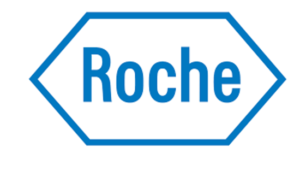AmCham at Arendalsuka 2024 – Building a Collaborative Ecosystem for Sustainable Healthcare Innovation
At this year’s Arendalsuka, AmCham hosted an event at the Clarion Hotel Tyholmen to explore how Norway can sustain its high-quality healthcare system through enhanced collaboration while the population is aging, budgets rise and oil revenues decline. The panel of industry leaders and politicians highlighted a significant trust issue between Norway’s public healthcare system and the private healthcare sector, a cultural barrier that hinders effective public-private collaboration and innovation.
Tore von Wurden (Country Director for Denmark/Norway/Iceland, Amgen) noted that Norway, in its current “luxury situation,” has the resources and potential to drive significant change but is hindered by a surprising level of distrust in public-private healthcare partnerships. He drew parallels to Norway’s successful public-private collaboration in the oil industry, suggesting that similar trust and cooperation are essential for creating a sustainable healthcare ecosystem.
Stefan Ohlsson (Vice President and General Manager, IQVIA Nordics) pointed out that while Norway has strong ambitions and a solid foundation for research, progress is not happening at the necessary speed. He urged a more proactive approach to healthcare delivery, leveraging digitalization and data analysis to meet the evolving needs of the population. Larsson also highlighted the success of global collaboration during the COVID-19 pandemic as a model for how public and private sectors can work together effectively both domestically and internationally.
Nina Zoric (Engagement Manager, McKinsey & Company) stressed the importance of acknowledging Norway’s world-class healthcare system but warned that long waiting times and an aging population are increasing pressures on the system. These challenges, she argued, are too complex for the healthcare sector to address on its own. Zoric also noted that Norway lacks the experience needed to integrate business with scientific research, which hampers the commercialization of scientific investments and advancements. To achieve the country’s ambitious goals for a growing healthcare industry, she also highlighted the need for improved financial incentives to attract international talent and companies.
Matthew Iles (General Manager, Abbvie Scandinavia) discussed the economic constraints on healthcare, noting that the demand for treatment is overwhelming across Europe. He argued that healthcare investments should be viewed in the context of their broader societal impact, not just immediate costs. Like many of his industry colleagues, Iles also pointed out the trust issues within Norway, particularly the reluctance to integrate the international healthcare industry into the healthcare system. He emphasized the need for a shift in mindset to leverage Norway’s potential in life sciences and innovation.
Joachim Thorkildsen (Assistant Subject Director in Medicine and Health Sciences, Vestre Viken HF) acknowledged a disparity between Norway’s strategic healthcare goals and the reality on the ground. He emphasized the need for more strategic objectives beyond the current procurement system and called for a more active and outward-facing approach to partnerships between the regional health trusts and the private sector to meet patient needs through innovative solutions, with the help of efficient national regulation.
Andreea Mocofan (Managing Director, MSD Norway) reinforced the critical role of the health industry in improving life expectancy, health outcomes, and economic growth. She called for a reassessment of Norway’s reimbursement system, which currently focuses too narrowly on price, suggesting companies should be rewarded for their research and innovation developed from investments in Norway. Further, Mocofan suggested that the country could learn from its success in promoting electric vehicles through intentional financial commitments and ecosystem collaboration to reach their ambitions for the healthcare industry.
Sveinung Stensland (H) reflected on the deep-rooted cultural issues in Norway, where the healthcare industry is sometimes viewed with the same skepticism as the tobacco industry. He argued that this mindset needs to change to allow for greater investment in healthcare innovation, like the governments successfully have done with other industries such as oil and EV’s.
Tuva Moflag (AP) echoed Stensland’s sentiments, acknowledging the cultural barriers and the need for collaboration between the public and private sectors to achieve Norway’s healthcare ambitions. Although it is the job of politicians to set high ambitions, they also need to listen to what the industry is telling them.
The discussion at Arendalsuka underscored the importance of trust, collaboration, and a strategic vision in navigating the complex challenges facing Norway’s healthcare system. The consensus was clear: to maintain the high standards that we currently enjoy, Norway must embrace a more integrated approach, leveraging both public and private strengths.
AmCham remains committed to advancing this agenda and encouraging greater conversation between public and private stakeholders.
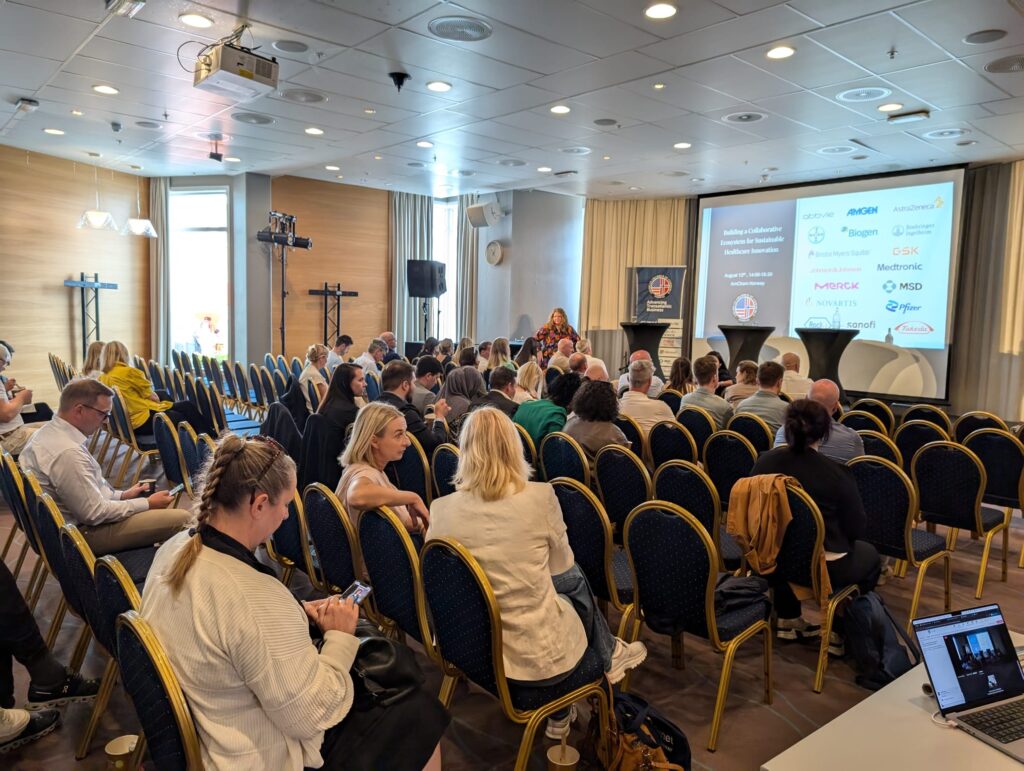
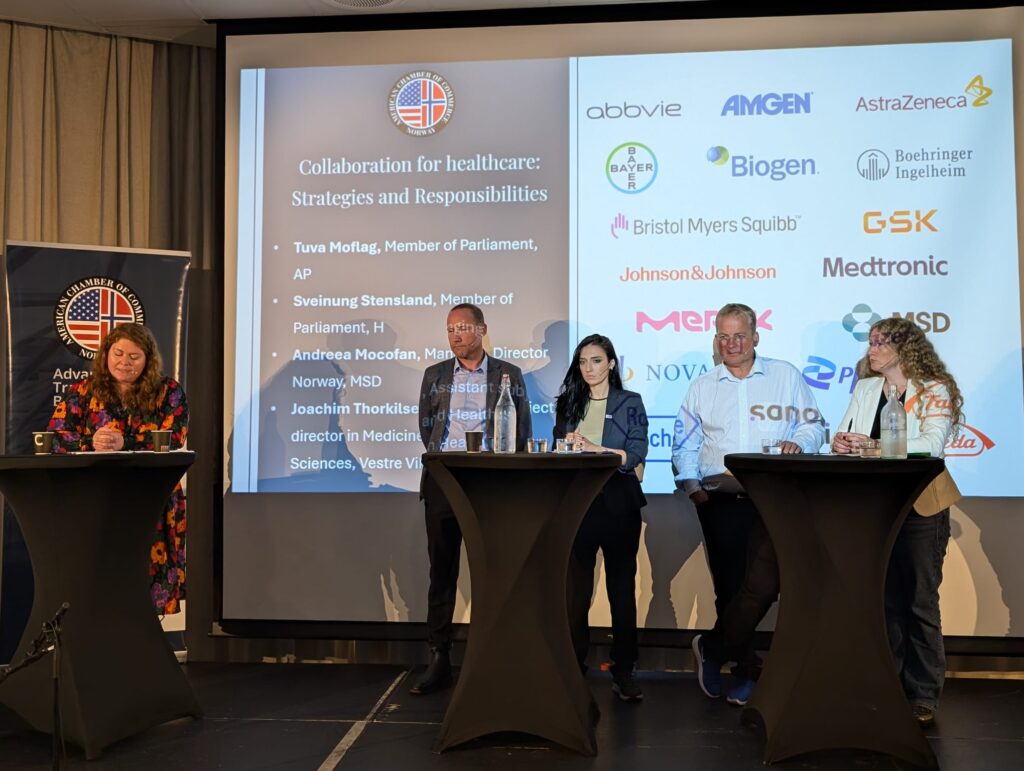
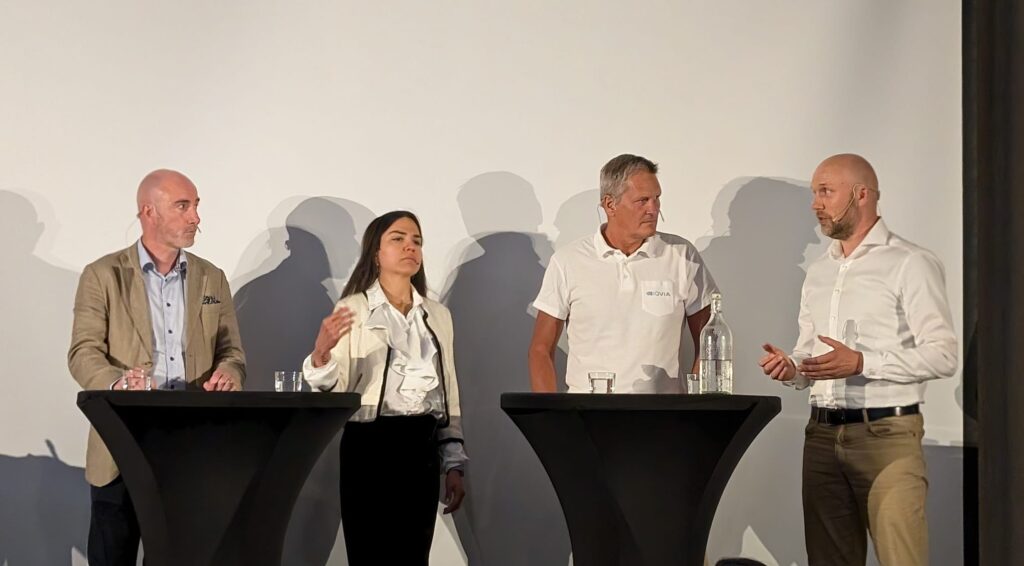
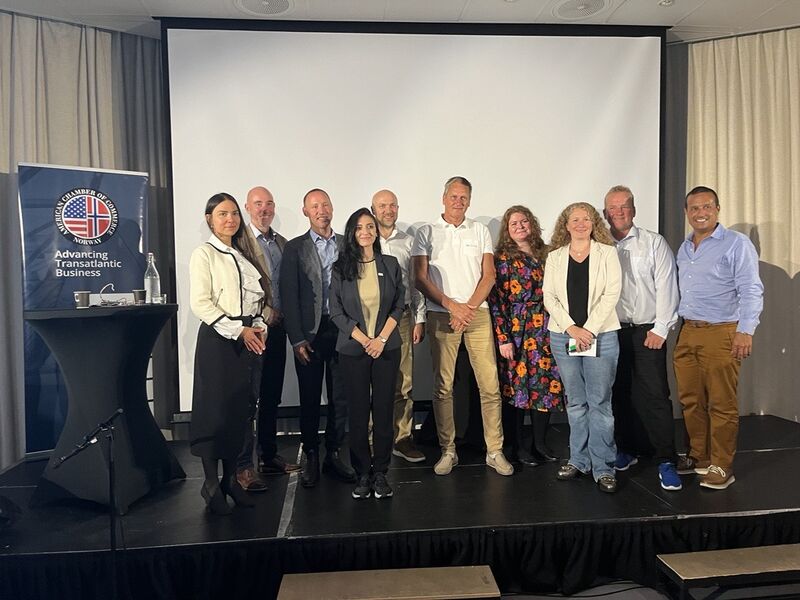
Amgen - Tore von Wurden
Abbvie - Mathew Iles
IQVIA - Stefan Ohlsson
Høyre - Sveinung Stensland
Vestre Viken HF - Joachim Thorkildsen
AP - Tuva Moflag
Thank you to our partners:
Functional Always active
Preferences
Statistics
Marketing
tel.: +47 22 41 50 10 | amcham@amcham.no | Sitemap | Privacy Policy | Designed by Flagship
AmCham © 2024














